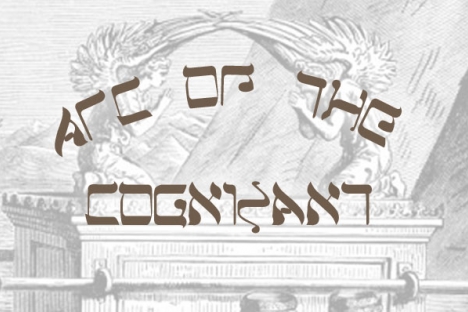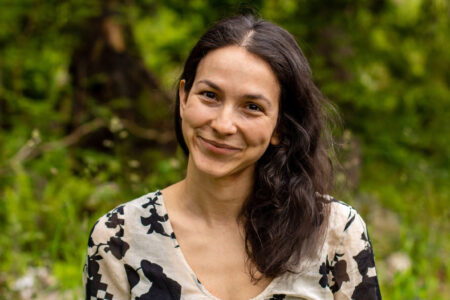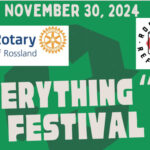Column: Is the pandemic IT? Has a ‘Quantum Consciousness Leap’ begun?
I began composing this edition of The Arc on February 29, but I didn’t get very far in my writing before unimaginable events in Canada overtook my topic. This is how I began:
______________________________________________________
Can Being an Elder have meaning in our accelerated era?
[My envy of seniors in times and cultures when Elders enjoyed high status]
The life-span of middle-class people in affluent Western countries has, we all know, been lengthening steadily for a century, though America has recently posted an alarming national trend indicating a slight statistical decline in recent years. In 1900, the average age of death across the wealthy nations of the West was near 50; now it is around 80 — a tick higher for women, and lower for men.)
Many social commentators and policy experts in the West now decry a coming crisis due to the unprecedented numbers of seniors in the general population, which has seen the fraction of seniors in the total rise, while the fraction of young people declines. This has serious implications for governments trying to plan health and social-economic outcomes in the future. People living longer lives with good health and financial security are in complete accord: this increase in their longevity is a Good Thing. I am one of them.
But beyond the self-interested opinion of the healthy, thriving, leisure-enjoying seniors pursuing the items on their bucket lists, who else celebrates the finer, longer lives of the elderly? Our children might want us to stay around, or not; ditto our grandchildren. We each make our own particular bed in terms of who values our presence and how much our absence would be mourned – or celebrated.
With so many more elders surviving, is there a qualitative change to be noted in our societies, cultures, and political worlds, in nations where the quantity of elders is impossible to ignore? Are elders on balance an asset or a liability, or unremarkable in impact? One might especially pose this question in a time when a virus is at large in the world that appears to be more serious, more-likely lethal, for the aged.
_______________________________________________________
That was then, this is now
The foregoing paragraphs are all I had written before the human world hit a wall of change within days of my beginning the column.
I cannot continue on this vector, with my questions about Elders and our significance to society as my main topic, not on a planet and in a time when a pandemic is transforming the face of the human world. Circumstances alter cases, and never more so than when global attention is rightly focussed on one subject.
My mind and the minds of every human aware of the COVID-19 viral event around the world, is changed by new knowledge. I learn important new things every day by simply observing what is happening in the human world, in the natural world, and within me where my reactions to events happen. What I learn is important because it teaches me about myself and my fellow human beings on this planet. This is a wonderful time to be witness to history being made, for one like me with a passion for history.
“Boomer remover”
An early reaction to the pandemic was a hashtag making the rounds on Twitter, #BoomerRemover. I’m a Boomer, born in 1951. I do fully understand why my generation has attracted a harvest of negative attitudes, to ourselves as insufferably entitled, unable to appreciate our gigantic good fortune in the historical moment into which we were born — and which is not reality for ensuing generations. Some of our judgments of other demographic cohorts have been provocative, without empathy or understanding, and I grasp the hostility we elicit from younger people.
But as I write this it is abundantly clear, the virus is not in fact a grim reaper only to the elderly. People younger than we (too-lucky) boomers are also dying in significant numbers.
Homostaypiens: forced home-stay brings unfamiliar personal challenges
I am by temperamentan introvert. I enjoy reading immensely. I enjoy my own company, and being alone outdoors in wide space and silence is as natural to me as it is unnatural to urban people in vast cities with large families, which is the norm for so many. This period of isolation and self-quarantine at home in solitude is not going to be nearly as burdensome to my psyche as it will perhaps be for others.
I have for a long time, like very many other people who express themselves publicly, wished our modern world was less frantic, noisy, oppressed by time and work, and so lacking in social graces and the appreciation of simpler good things in human life. Now I read and hear everywhere from people who are waking up to the pleasures of a life with less pressure to do, to produce, to perform, to earn.
But I understand that for many, an enforced period of no work, no paycheque, and lacking sufficient social activities or entertainments, will be tedious, unpleasant, boring, fearful. Governments and other institutions are responding in various ways to this prospect of citizens under stress; I think Canada is doing rather well at all levels of government and in the sphere of cultural responses to the crisis.
(Reader, please remember to show your appreciation for all who work in healthcare and other jobs essential to bringing us safely through this crisis.)
No matter how the greater society beyond the self is supportive or not, each of us is going to have the experience of facing inward to our own selves when activity is not an option. My own experience of this sort of life was substantial before this crisis — because I chose to live in that manner. A large majority of people I feel close to, are likewise individuals for whom the inner, self-reflective life is valued and practised. Meditation, prayer and contemplation are traditional ways one finds the inner life to be a worthy path.
What will the people who are not inclined to explore the landscape of the soul, character, mind, and heart, but prefer the outward world of action, distraction, sensation, and body, do in a time of enforced stay-at-home living? Learn the new way of being, and value it? Or use every possible material means to stay as they were before now; their home-entertainment tech, from TV and radio, games to music, computer and smartphone, will labour overtime to maintain an illusion of normalcy for the person who refuses change in their habits of escaping inner life. Such people will not take the opportunity to be more social or intimate with the people under their roof than they were before. No increase in quality of relationship and relating can be expected.
When we emerge “on the other side” — as the popular phrase has it – what will we humans do, knowing new things about ourselves as beings-without–doings? I wish I could believe this crisis is a lesson we learn, and we do not rush to “get back to everything as it was before.” But in all honesty, I cannot say I believe we will learn.
I am an historian; I know of no historical example of a vast crisis that uplifted human beings in the mass, as a species, to higher planes of compassionate, wise, spiritual, enlightened living. No war, plague, famine or natural catastrophe, that I know of, elevated our species rapidly to an ameliorated human condition. I know people — writers, thinkers, gurus, philosophers — who project a progressive path beyond this crisis. I, sad misanthrope and pessimist, demur.
Nationalism comes roaring back to respectability
In the progressivist political camp, it is orthodox dogma that nationalism is dying, must die, as the human species embraces the truth that we are all one family. It is a doctrinaire stance, this certainty that complexion, creed, ethnicity, culture – any and all divisive lines of identity — will be erased as markers in the utopian global society of the future. The happy embrace of one humankind beckons us onward.
Surprise! In this pandemic crisis, the nation-state is our saviour. We’ve all turned to the governments of our nations to help us, instruct us, protect us, finance us, in “the war against the virus”. What other option did we have? The U.N. is far from being the global government that the right-wing conspiracy-theorists think it is.
No global health crisis is so grave that geopolitical propaganda cannot twist it to the advantage of powerful state actors. Russia and China are making use of the situation to portray Western democracies as weakened, ineffective, and chaotic, while authoritarian regimes excel at managing the crisis. China has the additional intent to divert “shame” from itself as the original source of the pandemic virus, and their counter-narrative posits the American military as introducing it to China as a biological weapon.
The revelation of our dependence on the nation-state and its borders has set back the agenda of progressivism by a generation at least. I am on record in this column last year declaring I’m a nationalist; Canada’s high healthcare standard was one reason I took that position. My nation-state is remarkably well-constituted by any standard of comparison, and I would not dismantle it.
Rebels, outlaws, scofflaws, libertarians, defiant individuals at large
An early and easily-seen effect of the crisis and government response is this: people asserting they do not believe it to be serious. Denial that mass death is a real possibility, and that severe restrictions on movement and regulation of our behaviour are imperative. The American President has been one of these, but not in a consistent way; this crisis will, I am hopeful, be the death knell of his presidency.
The premier of Ontario, encouraging people to go on vacation in the March school break, took a wrong step in the rebel direction, but has since shown he understood his error. Our prime minister has been, against my expectation, very effective. I enthusiastically applaud his program to pay 75% of small-business wages, a measure as enlightened as what socialist Denmark has instituted.
A mutation of the defiant-rebel attitude is the conspiracy-theorist perspective, hypothesizing the whole pandemic as a plot perpetrated by a “deep state” to vastly increase the power of an occult few over the rest of humanity, to steal our freedom, enslave us to fear, and reap maximum benefit to themselves. One counter-narrative implicates 5G technology with the origin of the virus in Wuhan. The only proper response to this plot for a self-respecting freedom-loving individual is to defy what authorities and experts tell us to do. Arrggh! It is to weep…
I’ve seen and heard milder forms of defiance, not outright refusal to obey selected government directives but a slyly lackadaisical attitude to mandated behaviours (e.g. physical distancing from others) and a sneering questioning of what health experts say. My brother phoned me to rant down the line about people being ridiculously careful, too fearful, and over-reacting, but that was many days ago — and he has since reformed his defiance to muted griping.
This thought came to me when I listened to people who declare they are not going to be intimidated by oppressive laws, that they would aim to ignore authorities and experts who seemed overbearing: these people were not fighters against authority in other, more-worthy causes, not people who have been arrested for civil disobedience in defence of a watershed against logging or to prevent capitalist development on unceded native lands. These “rebels,” against the strict pandemic regimes being put in place, never cared enough before now to put their freedom at risk for an unselfish environmental or social cause.
Vaccination: this will be more than merely “interesting times”
Canadians know there are many among us who do not vaccinate themselves, nor their children. Health-care professionals prefer to use the term “vaccine hesitancy” to describe the phenomenon. It is more common to hear it called the anti-vax movement.
The anti-vaxxer fraction of our population is not small, and there are pockets of our province and others where the proportion is significant; the West Kootenay is one such. A beloved member of my own family belongs to this minority.
COVID-19 will likely prove to have an antidote vaccine to combat it; many of us will not hesitate to be inoculated with such a vaccine. What do we do when others say ‘No’? The present crisis will not soon be forgotten. Will we easily tolerate refusal by those who reject the “establishment” medical-science consensus, who insist on their human right not to be vaccinated?
Conclusions
There’s so much to say about this pandemic crisis, and much of it seems to be finding written expression. I hesitated to add even more to the flood of commentary and observations. I have held myself to a modest contribution, I hope.
But, I’m not done with you, reader. I urge you to read this seriously long essay by Charles Eisenstein. There’s almost nothing in it with which I would disagree.
https://charleseisenstein.org/essays/the-coronation/

























